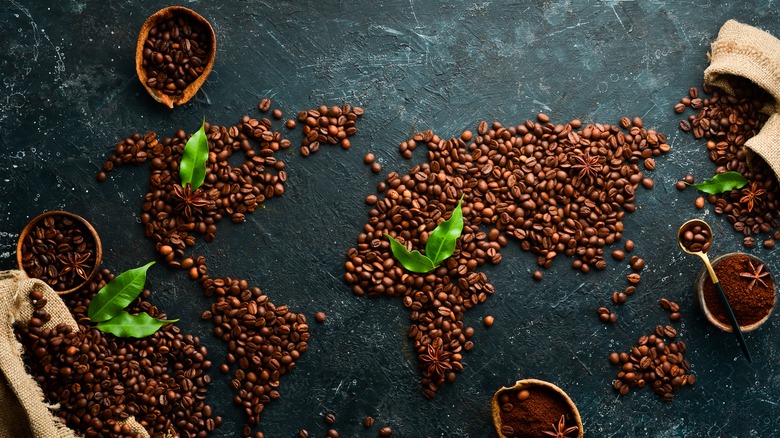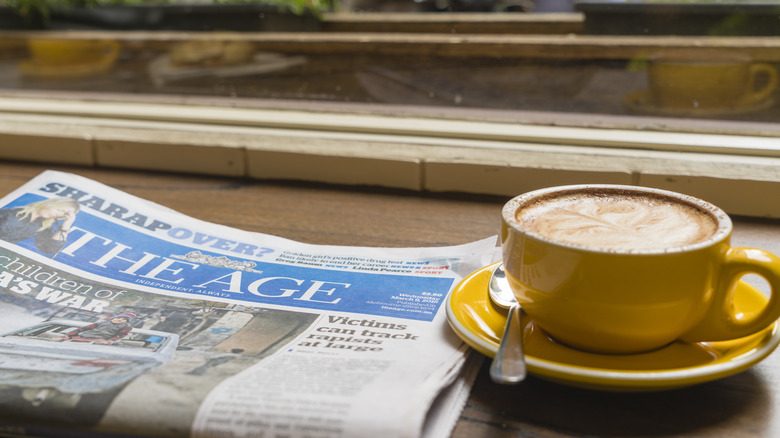The 167-Year Old Coffee That Unearthed Australia's Storied History
While some people's coffee culture might be as simple as a bleary-eyed stumble to hit that button on the coffee maker, Melbourne's coffee scene is a more robust cup of joe. According to Eater, Australia's coffee culture surged post-WWII, when an influx of European immigrants brought their brewing expertise down under.
Although many countries have a connection to the bean-brewed beverage, Coffee T&I Magazine asserts that Melbourne has "more cafes per person than any other city on the planet." From focusing on fair-trade beans to crafting specialty coffees, the city's offerings showcase the area's insatiable thirst for a better bean.
Even though the popular flat white might have a muddled origin story (per Culture Trip), the beverage associated with the continent has traveled far and wide. Whether it's the vibe at the cafe or the willingness to push the flavor boundaries, Melbourne's coffee scene is often touted as one of the best in the world. And a new discovery shows that the area's coffee history goes back even further than some people may have realized.
This ancient Australian coffee is a taste of food history
While some people tout Melbourne's robust coffee scene, a July discovery shows that locals have been brewing the bean for more than a century. According to Nine News Australia, an excavation in Melbourne revealed perfectly preserved 167-year-old coffee beans. Disinterred during a Metro Tunnel project, the unearthed coffee beans are believed to be from a Gold Rush-era general store.
Excavation director Meg Goulding explained the unexpected food treasure to Bean Scene Magazine, saying, "Like the organic remains found at Pompeii, the beans have been carbonized, which has led to their preservation. It's almost like the grocer locked up and left and then we get to see inside 167 years later." The preserved coffee beans are said to be "as far away as Sri Lanka."
Additional foods, including "biscuits, preserved fruits, and pasta," were also found in the excavation. While the coffee and other foods are inedible, the discovery gives a taste of what people consumed all those years ago. Perhaps the next time someone orders a flat white, a latte, or an espresso, it could spark a conversation about how a cup of coffee can brew a historic food culture connection to the foods we still enjoy today.

